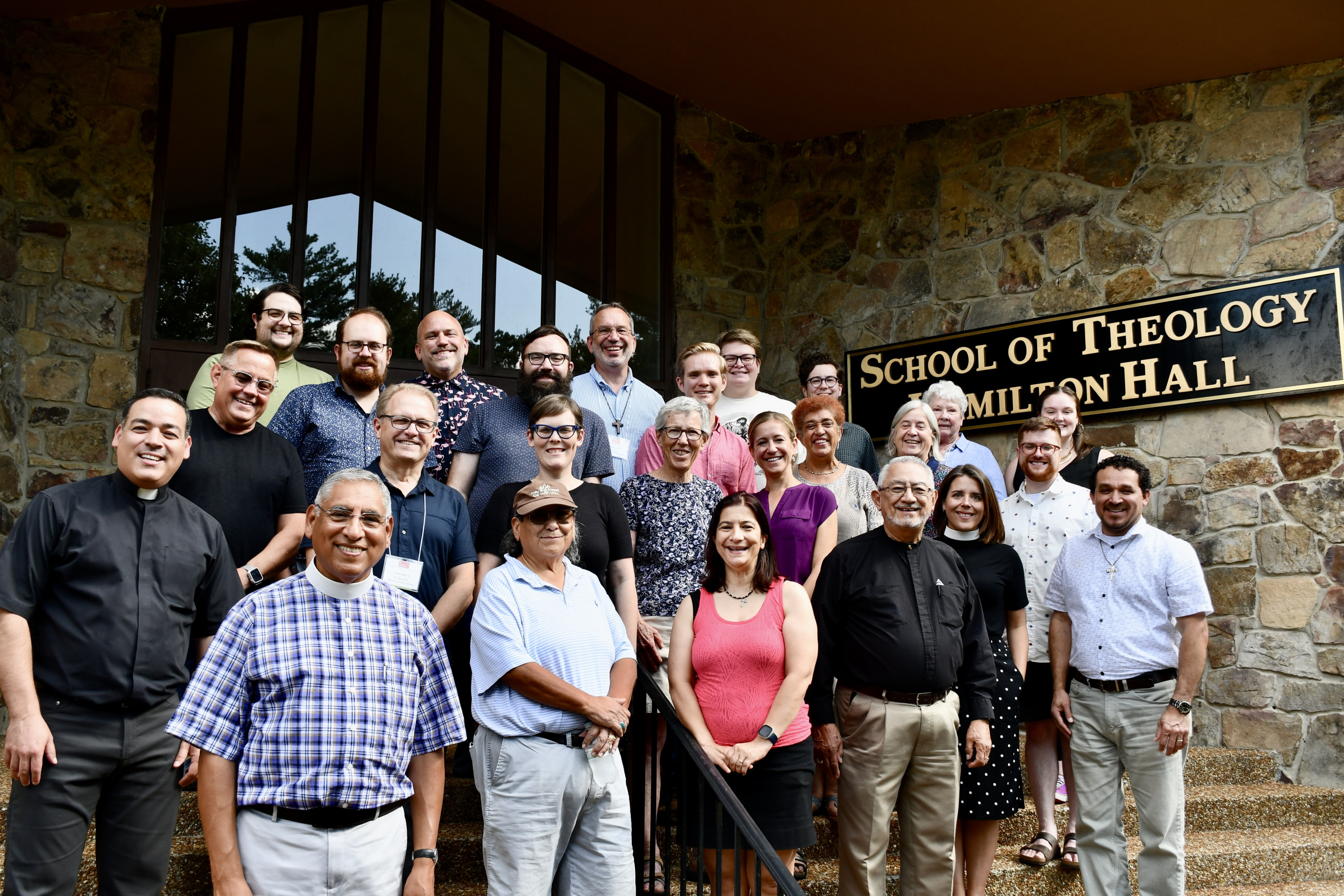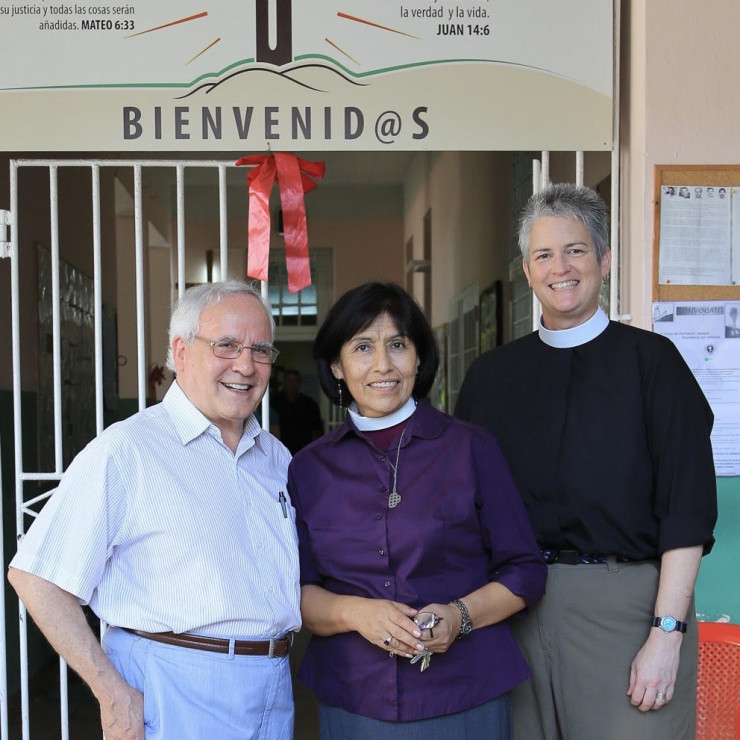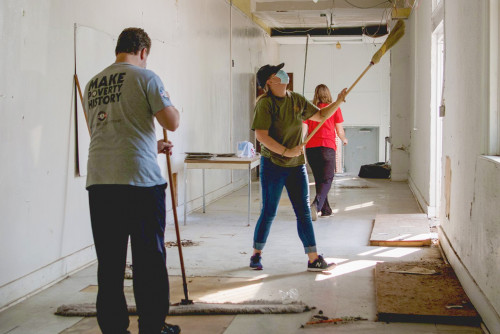Contextual Education is the broad term used at the School of Theology for the numerous ways students apply academic knowledge and classroom experience to ministry opportunities in a variety of settings.
For a seminarian, the phrase “practice what you preach” means more than it might to the rest of us—it is, after all, impossible to learn ministry without doing any ministering. Students at the School of Theology are lucky to receive an outstanding contextual education experience. In fact, according to a recent evaluation by the Association of Theological Schools (ATS), Sewanee’s contextual education program is one of the seminary’s “distinctive strengths.”

Today, contextual education at the School is some of the most robust and enriching formation a seminarian can receive anywhere. Ours is a holistic approach where practical efforts cohere directly with classroom education and gives students “a sense of connectedness”—they know how every part of their training—both theoretical and practical—grounds their theology and ministry.
Contextual Education is the broad term we use at the School of Theology for the numerous ways students apply academic knowledge and classroom experience to ministry opportunities in a variety of settings. This includes classes in leadership and parish dynamics, internships, Clinical Pastoral Education, cross-cultural experiences, and other extracurricular activities. Contextual education takes place alongside your classroom experiences.
CLINICAL PASTORAL EDUCATION (CPE)
CPE usually takes place in the summer between junior and middler year, offering students the chance to develop experience as pastors to people in crisis. Often in a hospital or hospice setting, although other settings are possible as well, students work with a supervisor and a colleague group to better understand their own gifts and strengths, fears, and points of resistance, while working in an ecumenical and interfaith setting. The School of Theology provides financial support for this degree requirement along with focused reflection before and after the summer intensive.
FIELD EDUCATION
Throughout the middler year and during the first semester of the senior year, students are directly involved in a local congregation—located anywhere from the rural areas around the Domain to the urban centers of Chattanooga and Nashville, Tennessee, and Huntsville, Alabama.
Working with a parish priest who serves as the mentor, students spend time weekly outside the placement setting to reflect on the actions of the week. In the Advent term of their senior year, students will continue their field education in a parish or community ministry setting with the expectation that there will be a specific responsibility or focused program that will continue to build leadership skills while actively supporting ministry and community engagement.
COURSEWORK
Several core courses are aimed at practical preparation for ministry. Along with field education, students take courses on congregational dynamics, as one learns to read and understand a congregation's history, reality, and future mission; on congregational leadership, as one begins to develop the skills, habits, and imagination of a parish priest; and on community and organizational leadership which continues to reflect on the work of leadership and the foundation one needs to manage and lead an institution.
COLLOQUY
At the School of Theology, we are committed to developing habits of reflection and lifelong learning. To instill this habit while in field education, students participate in small colloquy groups with other students in a variety of field placements. This allows each student to reflect on their own unique experience and ministry setting while affording them the opportunity to learn from the experience of others.
Latino/Hispanic Ministry
The School of Theology at the University of the South has a long standing commitment to equipping students for Latino/Hispanic ministry. The seminary has been offering Spanish courses continuously since the fall of 1991. The Latino/Hispanic Ministry Program seeks to connect seminarians with a growing population in the United States and to provide opportunities for ministry and engagement in Latino contexts. Students are prepared for ministry through language and cultural education, Spanish and bilingual worship services, and travel and immersion experiences.

COURSES
The School of Theology offers several courses for students who are interested in Latino/Hispanic ministry. These courses are designed to provide linguistic proficiency, cultural competency, and pastoral skills for ministry within Latino communities. In language classes, students learn how to communicate effectively in Spanish in pastoral and liturgical settings. Through various readings, presentations, and site visits, students are also introduced to different models of Latino ministry within the Episcopal Church, as well as key issues in Latino theology. Additional electives explore Latino theology, spirituality, and worship in greater depth.
WORSHIP
Formation for Latino/Hispanic ministry continues beyond the classroom. In the Chapel of the Apostles, Spanish services are part of the regular rhythm of worship. Spanish Evening Prayer is held once a week, and Spanish Eucharist is offered every other week. Bilingual services are also offered several times during the year. Seminarians are responsible for reading, officiating, preaching, and leading music at these services.
TRAVEL
The School of Theology has an established relationship with El Seminario Evangélico de Teología in Matanzas, Cuba, where students are sent on travel seminars. These trips provide students with the opportunity to become immersed in another culture, to practice their language skills, and to build relationships with Cuban seminarians and faculty. With relationships in several other Latin American countries, the School of Theology offers students many opportunities to engage in cross-cultural immersion experiences.
Cross-cultural experience
The cross-cultural experience at the School of Theology is meant to push seminarians beyond their normal patters of life and work to experience the Gospel in a different context. It helps students begin to reflect on their ministry in a post-Christendom era by seeing the world and their racial, religious, and social group from another culture’s perspective.

Before graduating, all students are encouraged to participate in a cross-cultural experience in which the student is directly involved in ministry with people from a culture other than their own. A student may have the notice of participation in a cross-cultural experience added to his or her transcript when it has been engaged with an approved domestic or international cross-cultural field education site. The director of contextual education can be a resource and it is recommended that you begin planning for this opportunity as soon as possible.




